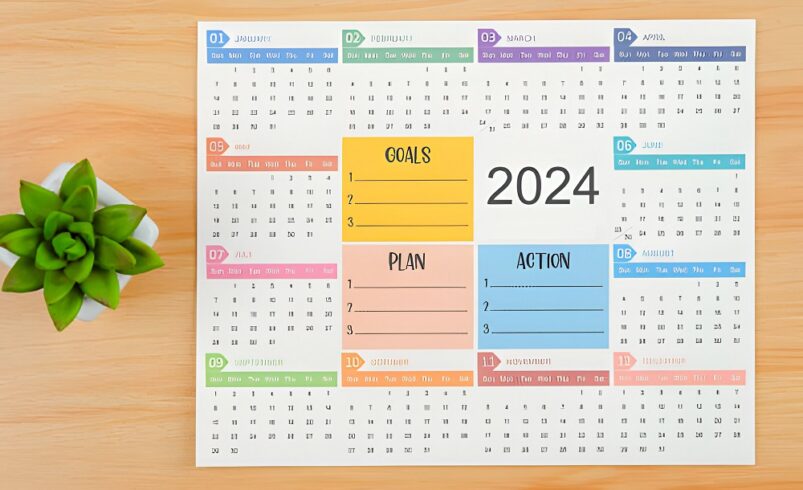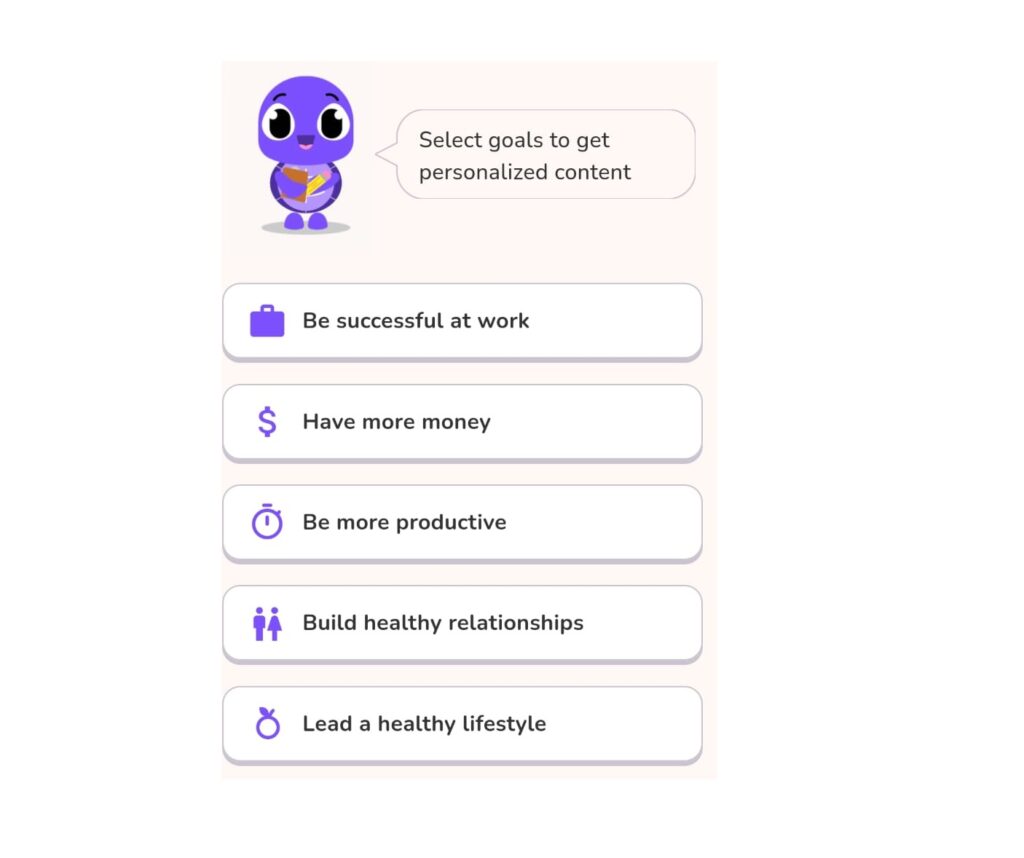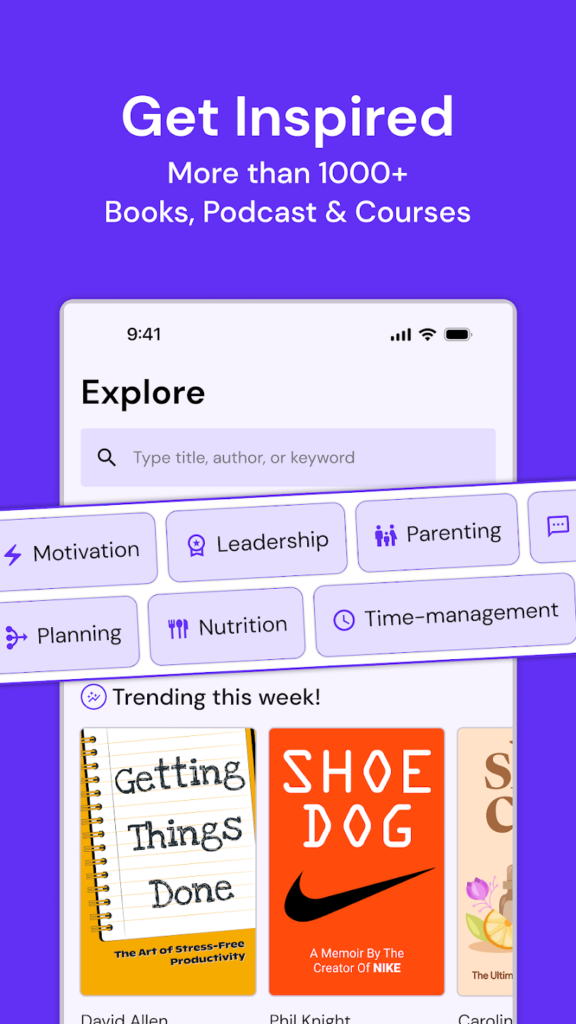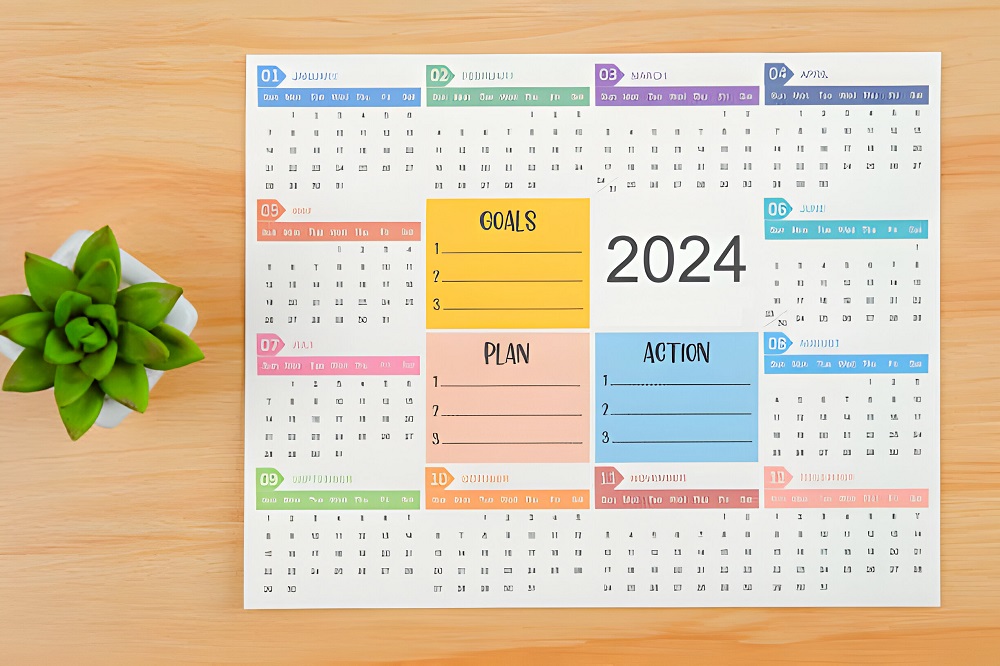
Why Do Goals Even Matter?
Let’s face it, life can be a little chaotic sometimes. Between work, family, friends, and trying to squeeze in some “me-time,” it’s easy to feel like you’re juggling a thousand things at once. But guess what? That’s where goals come in and save the day. Think of goals as your personal GPS – they give you direction, keep you on track, and help you avoid getting lost in the land of procrastination. Without them, you’re basically wandering around with a blindfold on, hoping you’ll stumble onto something good.
Now, don’t get me wrong – setting goals might sound like a chore. Who wants to think about all the stuff they have to do? But here’s the kicker: when you set goals, especially weekly ones, you’re not just adding more to your plate. You’re actually making your life easier. It’s like pre-planning a vacation itinerary so you’re not stuck on some random street corner Googling “best things to do in Barcelona.” With goals, you know exactly where you’re going and how to get there.
Why weekly goals? Well, they’re the perfect sweet spot between those giant, looming long-term goals (like running a marathon) and the tiny daily tasks (like brushing your teeth – seriously, please don’t forget that one). Weekly goals give you enough time to make real progress without feeling like you have to wait for forever to celebrate. It’s like bite-sized progress that still tastes like victory.
Plus, goals help you stay focused on the things that actually matter. If you’ve ever spent an entire week thinking about being productive, only to end up binge-watching Netflix, you know how easy it is to lose track of time. Weekly goals give you a nudge – okay, sometimes a kick in the pants – to prioritise and get stuff done. And hey, there’s nothing like the feeling of checking off that last item on your list. It’s the adult version of getting a gold star.
But wait, there’s more! Goals are a fantastic way to build momentum. Achieve a small goal? Boom – confidence boost. You’re suddenly one step closer to conquering the world (or at least your laundry pile). The point is, when you see yourself making progress, it motivates you to keep going. And that’s when the magic happens.
Contents
Why Bother with Weekly Goals?
You know those ambitious New Year’s resolutions we all love to make (and promptly forget by February)? Yeah, weekly goals are kind of the opposite of that. They’re like the no-pressure, commitment-friendly version of goal setting. You’re not signing up for a year of gym visits – you’re just agreeing to try for a week. Easy, right?
That’s why weekly goals are such a game-changer. They’re realistic. You don’t have to figure out what your life is going to look like 12 months from now. You just need to plan for the next seven days. It’s like meal prepping, but instead of organising your fridge, you’re organising your life. You wouldn’t eat all your meals for the month in one day (I hope), so why plan all your goals for the year at once?
Weekly goals also give you the chance to hit reset. Had a bad week? No worries! You get a fresh start every Monday (or whatever day you decide to be the boss of your own week). Plus, with weekly goals, you’re way less likely to procrastinate. There’s something about a short deadline that gets you moving. It’s like when you have to clean your whole house before guests come over in 30 minutes. Suddenly, you’re a productivity machine.
And let’s not forget the power of small wins. Completing a goal, even a tiny one, feels amazing. It’s like finding a forgotten $10 bill in your pocket – you weren’t expecting it, but it totally makes your day. With weekly goals, you’re setting yourself up for these little moments of “I did it!” every single week. And those wins? They add up.
Another bonus: weekly goals help you balance your life. Have you ever gone full-throttle on one thing, only to realise everything else is falling apart? (Looking at you, workaholics!) By setting goals each week, you can make sure you’re giving attention to all the important areas of your life – career, health, relationships, and yes, even that Netflix binge you’ve been putting off.
How to Set Goals You’ll Actually Want to Accomplish
Alright, so you’re convinced – weekly goals are where it’s at. But how do you actually set goals that work? I mean, we all *want* to be better, but sometimes we set goals that are so ambitious, they belong in a superhero movie. “This week, I’ll become fluent in Mandarin, run a triathlon, and reorganise my entire house!” Yeah…no. Let’s pump the brakes on that.
When setting weekly goals, think SMART – Specific, Measurable, Achievable, Relevant, and Time-bound. Basically, if your goal isn’t clear and realistic, it’s going to flop harder than that banana bread recipe you tried last year. Instead of “exercise more,” try “go for a 30-minute walk, three times this week.” See? Easy, specific, and totally doable. Plus, it’s way harder to cheat yourself out of a goal when it’s this clear.
Measurability is also key. You want to know when you’ve crossed the finish line. Saying, “I’ll get some work done” is too vague. Saying, “I’ll complete three tasks from my project list by Friday” is measurable. You’ll know when you’re done, and you can high-five yourself for being awesome.
Speaking of achievable, let’s be real: if your goal for the week is to win a Nobel Prize, maybe reconsider. You want your goals to challenge you, but not so much that they send you running for the hills. If your goal feels doable but still pushes you, you’ve hit the sweet spot.
And relevance? Well, if you’re trying to improve your health, setting a goal to watch all the Marvel movies probably isn’t the best use of your time. (Unless, of course, you’re focusing on mental health, and that’s your relaxation time. In which case, carry on, hero.)

Finally, time-bound means giving yourself a deadline. In this case, it’s the end of the week, which helps create a sense of urgency. After all, you can’t keep saying, “I’ll get to it someday.” With weekly goals, someday is right now.
Accountability: It’s Not Just for Gym Buddies
Okay, so you’ve set your goals for the week – now what? The tricky part is actually sticking to them. (We’ve all made promises to ourselves that mysteriously disappear by midweek.) That’s where accountability comes in. Whether it’s telling a friend, writing it down in a journal, or using an app, holding yourself accountable is the secret sauce to achieving your goals.
One way to stay accountable is by checking in with yourself daily. It doesn’t have to be a formal meeting (no suit required), but take a few minutes at the end of each day to ask, “How did today go? Am I on track?” And if you’re not, no biggie – just make a plan to catch up. No shame in recalibrating!
Want to kick it up a notch? Share your goals with someone else. Whether it’s your partner, a friend, or even your cat (hey, cats are great listeners), telling someone what you’re working on adds a layer of commitment. You’re way less likely to bail on a goal if someone else is going to ask you about it later.
Also, don’t underestimate the power of journaling. Writing down your progress is like creating a personal highlight reel. Plus, if you ever feel stuck, you can flip back through your journal and see all the awesome things you’ve already accomplished. Instant motivation.
And finally, rewards. Yes, I’m telling you to treat yourself. Set a mini-reward for crushing your goals. Maybe it’s something small, like getting that fancy coffee you love, or taking a guilt-free afternoon off. Whatever floats your boat, just make sure you’re rewarding progress, not perfection.
25 Examples of Weekly Goals
Here are 25 example goals you can set for your week:
- Work out for 30 minutes, five days this week: Let’s be real, we’re not trying to win the Olympics here. Just 30 minutes of movement, five days a week, is enough to convince yourself you’re a fitness guru. You’ll feel stronger, and your future self will thank you for not turning into a couch potato.
- Read one chapter from a self-help book before bed: It’s like giving your brain a little pep talk before you hit the pillow. One chapter at a time, you’ll unlock new secrets to conquering life. Plus, you can feel all sophisticated telling people, “I’ve been reading *this* amazing book about personal growth…”
- Take a 10-minute walk every afternoon: This is your built-in excuse to escape work, stretch your legs, and pretend like you’ve got somewhere really important to be. A daily 10-minute stroll can do wonders for your mood and may even spark some genius ideas.
- Finish a work project by Friday: You know that deadline that’s been lurking around? Time to show it who’s boss. Wrapping it up by Friday will make you feel like a productivity rockstar, and you won’t have to deal with any weekend guilt.
- Spend one hour each day learning a new skill: Whether it’s mastering a new language or finally figuring out what the heck Excel pivot tables are, dedicating an hour a day to learning something new is the grown-up version of keeping your brain sharp. Plus, think of the impressive party conversation skills you’ll have!
- Catch up with a friend over coffee or a call: Texting memes is great, but an actual conversation with a friend? Priceless. Grab coffee or have a phone chat, and you’ll remember why human interaction is still a thing. Bonus points if you manage to avoid talking about the weather.
- Organise your desk (so you can actually find stuff): If you’re digging through piles of papers like Indiana Jones searching for the Holy Grail, it might be time to tidy up. A clean desk means you’ll spend less time hunting for pens and more time getting things done… or at least looking like you are.
- Prep meals for the week on Sunday: Sunday meal prep: because scrambling for lunch five days in a row isn’t a fun game. Prepping in advance lets you pretend you’ve got your life together and saves you from last-minute microwave ramen desperation.
- Knock out three small home repairs you’ve been avoiding: You know those tiny repairs you’ve been ignoring? Time to tackle them before they morph into bigger, scarier issues. Plus, there’s nothing quite as satisfying as fixing something and feeling like you could star in your own DIY show.
- Drink eight glasses of water a day: Hydration is key, but let’s face it, it’s easy to forget. Keep a water bottle nearby, and you’ll be refilling your body like the well-oiled (or well-watered) machine it is. Bonus: clearer skin and fewer headaches. Who knew water was such a miracle worker?
- Spend 15 minutes each day decluttering: Ever wonder why your space feels a little chaotic? Decluttering is like giving your brain a spa day. Spend 15 minutes each day throwing out the junk you don’t need, and suddenly your home (and mind) will feel more Zen than a meditation retreat.
- Journal every night for a week: Channel your inner philosopher and start writing down your thoughts each night. Not only is it a great way to unwind, but in a few years, you’ll have some solid material to cringe at or admire. Who knows? You might even get some life-changing epiphanies along the way.
- Plan your goals for next week by Friday: Planning ahead is like giving your future self a cheat sheet to life. Write out those goals by Friday, and you’ll hit Monday feeling more prepared than a scout on a camping trip. Plus, no frantic Sunday-night panic sessions. Win-win!
- Spend 30 minutes working on a hobby: Whether you’re painting, knitting, or attempting to make sourdough bread for the 17th time, spending half an hour on a hobby is the perfect break from adulting. It’s fun, fulfilling, and the closest thing to time travel – where did the last 30 minutes go?!
- Take two days off from social media: Scrolling through social media can be fun until you realise two hours have vanished, and you’re comparing yourself to a stranger’s vacation photos. Unplug for two days and rediscover life without memes or influencer drama. You might even have time for that book you’ve been meaning to read.
- Create a budget for the week (and stick to it!): A budget isn’t just some boring adult thing. It’s like telling your money where to go instead of wondering where it went. Take charge of your finances, stick to your plan, and avoid the dreaded “how did I spend all my money on takeout?” moment.
- Reach out to a new networking contact: You know that person you met at the last event, or maybe that LinkedIn connection you’ve never actually spoken to? Time to send a message. Networking can open doors, and who knows? That new contact might just become your next collaborator or friend.
- Write 1,000 words for a personal project: Whether it’s a novel, blog, or secret diary, getting words down is progress. Every. Single. Time. Writing 1,000 words might sound intimidating, but once you get rolling, it’s the best way to keep those creative juices flowing and finally bring that project to life.
- Get outside for fresh air at least once a day: Even if you’re a certified homebody, there’s something magical about stepping outside and soaking in the world. Whether it’s a quick breather or a long stroll, nature is the free therapy we all need.
- Try a new recipe for dinner: If you’re bored of your go-to spaghetti, why not shake things up with something new? Trying a fresh recipe is both an adventure and a delicious reward. Plus, in the worst-case scenario, you’ve got a funny cooking disaster story to tell.
- List three things you’re grateful for each day: Take a moment each day to focus on the good stuff. It’s like rewiring your brain to see life’s little joys, and suddenly, even a good cup of coffee can feel like a mini-celebration. Besides, it’s hard to be cranky when you’re thinking about what you’re thankful for.
- Read one industry-related article: Keeping up with your field doesn’t have to be a chore. Find an article that sparks your interest, and you’ll be learning something new without even realising it. Plus, it’s a great way to sprinkle in some expert knowledge during meetings and look like you’re on top of your game.
- Meditate or practice mindfulness for 10 minutes each morning: You don’t have to be a yogi to benefit from mindfulness. Just 10 minutes of deep breathing and focusing your mind can set the tone for a more relaxed, productive day. Plus, it’s a good way to mentally prepare for whatever chaos awaits.
- Add at least two healthy meals to your diet: Healthy eating doesn’t have to mean a lifetime of boring salads. Find two meals that are both nutritious and delicious, and your body will thank you. Plus, you’ll feel a little less guilty about that inevitable cookie binge.
- Finally tackle that personal project that’s been haunting you: We all have that one project hanging over our heads. Instead of letting it collect dust, dive in and get it done. Once it’s finished, you’ll feel like a weight’s been lifted – and who knows? You might even enjoy the process.
Condensed List:
- Work out for 30 minutes, five days this week.
- Read one chapter from a self-help book before bed.
- Take a 10-minute walk every afternoon.
- Finish a work project by Friday.
- Spend one hour each day learning a new skill.
- Catch up with a friend over coffee or a call.
- Organise your desk (so you can actually find stuff).
- Prep meals for the week on Sunday.
- Knock out three small home repairs you’ve been avoiding.
- Drink eight glasses of water a day.
- Spend 15 minutes each day decluttering.
- Journal every night for a week.
- Plan your goals for next week by Friday.
- Spend 30 minutes working on a hobby.
- Take two days off from social media.
- Create a budget for the week (and stick to it!).
- Reach out to a new networking contact.
- Write 1,000 words for a personal project.
- Get outside for fresh air at least once a day.
- Try a new recipe for dinner.
- List three things you’re grateful for each day.
- Read one industry-related article.
- Meditate or practice mindfulness for 10 minutes each morning.
- Add at least two healthy meals to your diet.
- Finally tackle that personal project that’s been haunting you.
A Little Help from Wizdom
So there you have it! Setting weekly goals can help you prioritise, stay focused, and ultimately crush it in all areas of life. Remember, it’s all about balance, accountability, and celebrating those little wins along the way.
Now, if you’re looking for extra motivation and wisdom, let me introduce you to the Wizdom app. It’s like having a personal library of the best self-help books, right in your pocket. The app provides bite-sized summaries of popular titles, so you can learn new strategies without having to read entire books. (Because let’s be honest, who has time for that?)

Why use Wizdom? Well, it saves you time, gives you the highlights of each book, and helps you implement what you learn into your weekly goals. Whether you’re looking to improve your habits, stay focused, or boost your productivity, there’s a book for that – and Wizdom has the summary.
If you’re into goal setting, here are a few book summaries on Wizdom you might want to check out: “Atomic Habits” by James Clear, “The 7 Habits of Highly Effective People” by Stephen Covey, and “Grit” by Angela Duckworth. These books offer practical tips and motivation that can help you nail your weekly goals.
So, what are you waiting for? Grab Wizdom, set those goals, and start crushing your week! You got this.

Zia Hawwa
Currently pursuing a Degree in Criminology, Zia’s passions lie in the world of literature and the human psyche. She loves what the world has to offer, and is always on the journey of satisfying her curiosity.

The Best Messages for When You Are Out Of Office
Recent Posts
- 25 Top Quotes from The 10X Rule to Supercharge Your Ambition
- 10 Books You Must Read to Succeed in Your Career
- 30 Little Tricks for Big Success in Relationships
- 25 Life-Changing Self-Help Books to Read This December: Boost Your Mood and Your Mind
- 25 Amazing Self-Care Tips for December: Wrap Yourself in Joy, Not Stress


